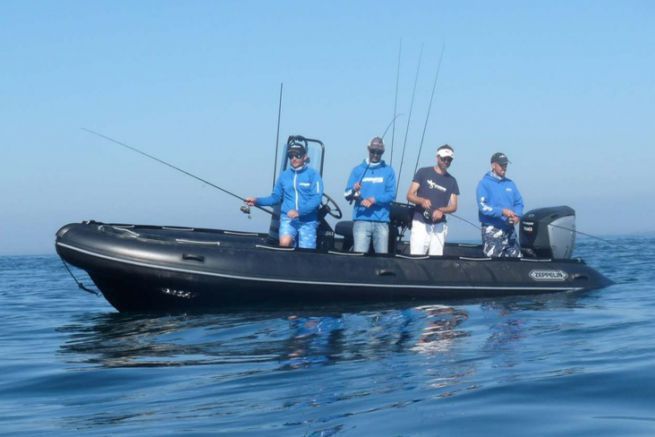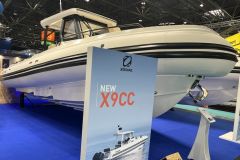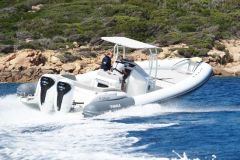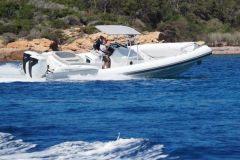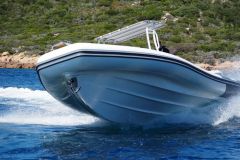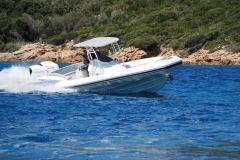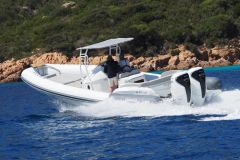Why are hard-shells shunned by sport fishermen?
My reflection is based on 3 observations:
- The first is to look at the types of boats involved in major sea bass fishing competitions. The GlÚnan competition, for example, which gathers more than 100 boats at the start of the rounds, records less than 10 teams sailing on hard hulls.
- The second one is the one I made during the last sea fishing show in Nantes in February. Many boats were exhibited and the percentage of hard hulls was very low.
- Finally, the last observation concerns my entourage. None of my relatives, who practice sea fishing assiduously, sails in hard hull.
So why is there such a denial by sport fishermen about open hulls? What are the advantages and disadvantages of each type? Let's try to find out together.

Specifications:
The choice of a boat is made according to the needs and expectations of the future owner. They are different whether you are an occasional boater with a program focused on family outings or a sport fisherman exclusively. We, fishermen, are looking for a boat with the following characteristics:
Ôeurosó Easily transportable to vary fishing areas.
Ôeurosó A boat that is easy to launch, even alone.
Ôeurosó A safe ship with a good sea passage.
Ôeurosó Good drift stability.
Ôeurosó A high cruising speed to move quickly between fishing areas.
Ôeurosó Onboard storage for safety equipment and clothing.
Ôeurosó A place on board optimized for fishing with several people.
Ôeurosó A versatility fishing/pleasure.
Let's take these criteria one after the other and see which type of hull fits best.
To do this, I will compare hard and semi-rigid hulls of transportable sizes, i.e. between 5 meters and 6.50 meters.
Easy to transport and launch:
This is an essential criterion for fishermen. The fact of being able to use different holds, some of which are not very accessible, in order to increase the fishing range.
For this reason, a light boat, easily transportable with most vehicles without the need for a special license is a fundamental criterion.
Let's compare two hulls of about 6 meters:
The Leader 6.25 displays 860 kilos (bare hull) when a Valiant DR 620 displays only 480 kilos (bare hull). A difference of more than 400 kilos which requires the appropriate vehicle, probably a double axle trailer to transport the Leader.
On this point the semi-rigid wins the point.
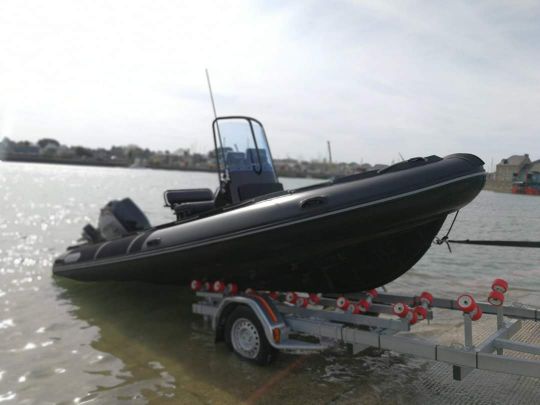
Marine behavior:
I had the opportunity to sail on different boats (semi-rigid or open hull).
In rough seas, for the same size, RIBs definitely have better passage, don't get wet, and when drifting to fish, they roll much less than hard hulls. Leaning with several people on the same side is not a problem.
Lighter than open hulls, they are fast and easy to handle. With the same size and engine, the performance will be better on a RIB.

Onboard storage:
It is difficult to reconcile space on board to fish with several people and to have plenty of storage space. In this case, it's once again a matter of compromise.
In this respect, the open hull scores a point. Often equipped with a cockpit and several lockers, there is no lack of storage space on this type of boat. Fishing RIBs often have a minimalist configuration that offers little storage (a console, a bolster and an anchor locker).
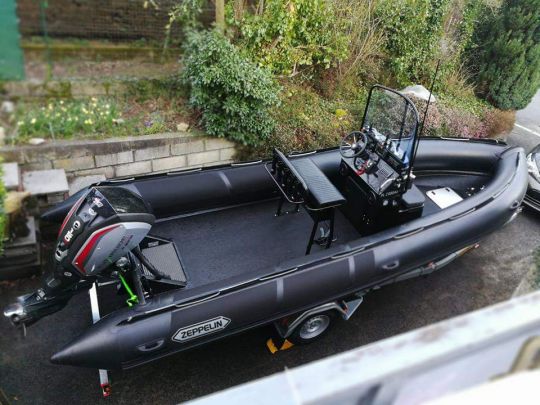
The layout of the RIBs is really Ó la carte as I explained to you through this article on my semi-rigid Zeppelin. For the same RIB hull, the choice of accessories is vast and everyone can choose the one that best suits them. This is impossible to do when the console is molded with the hull, as is often the case on hulls.
The versatility of fishing and boating:
Even though we are first and foremost avid fishermen, many of us enjoy an outing with family or friends. Open hulls offer more versatility than RIBs. Often equipped with storage, removable sunbeds or bench seats, families will appreciate this type of layout. On RIBs, always with a concern for space on board, these accessories are not part of the layout sought by fishermen.
After this analysis, we note that RIBs correspond better to the expectations of sport fishermen who prefer mobility and ease of transport to storage and space on board. The comfort during navigation of a RIB is superior to that of a hard hull, which is also a strong argument for us, who go out in more "muscular" conditions, than for cruising.

 /
/ 